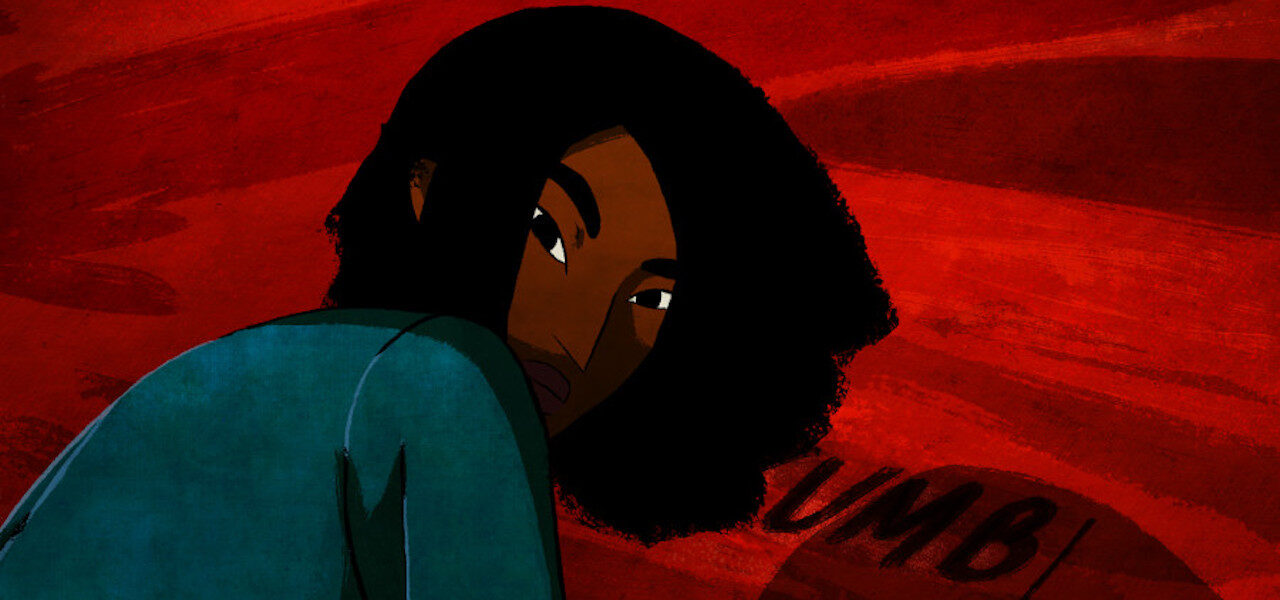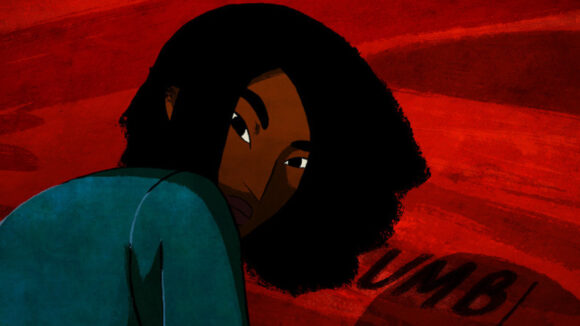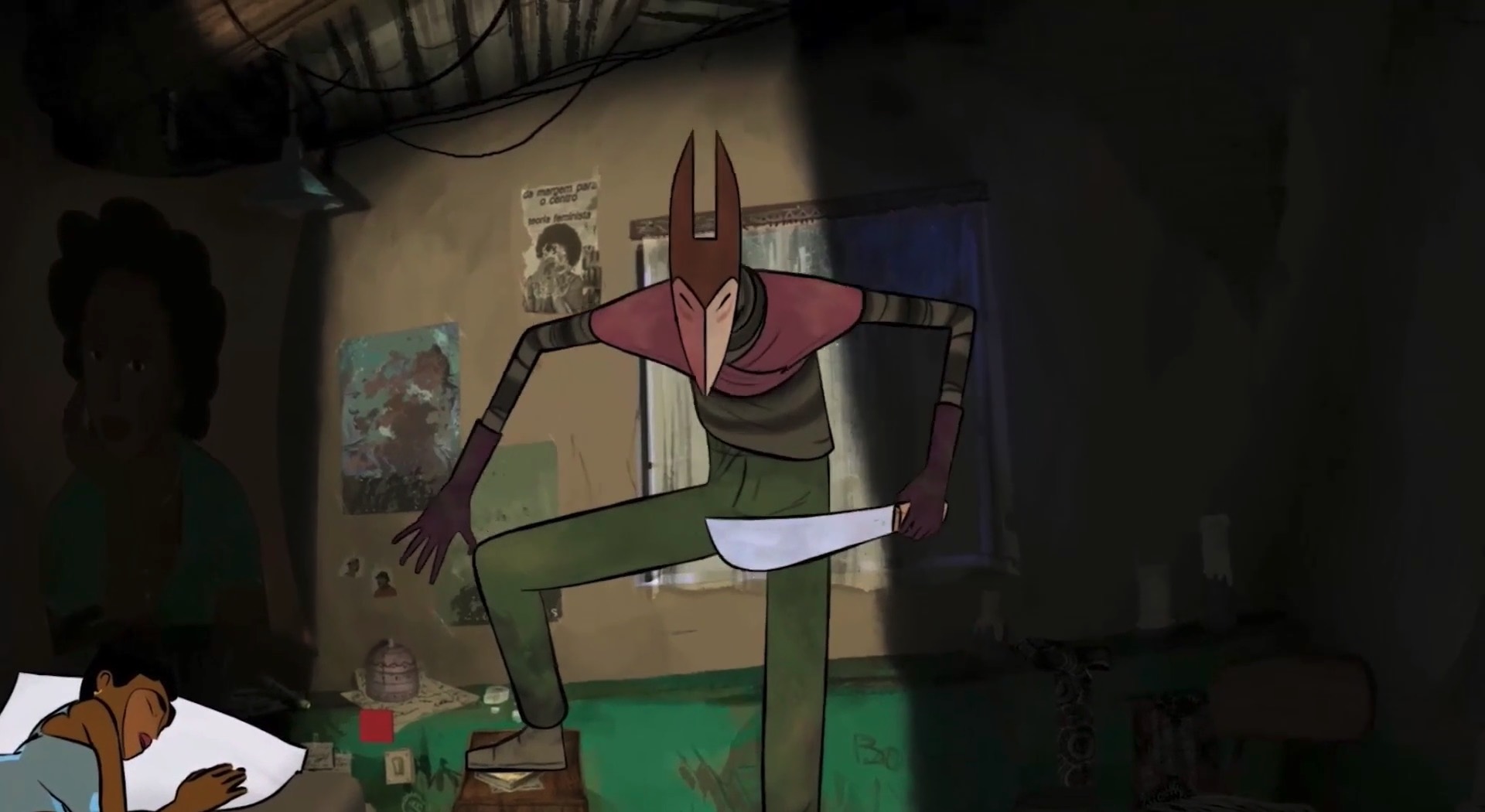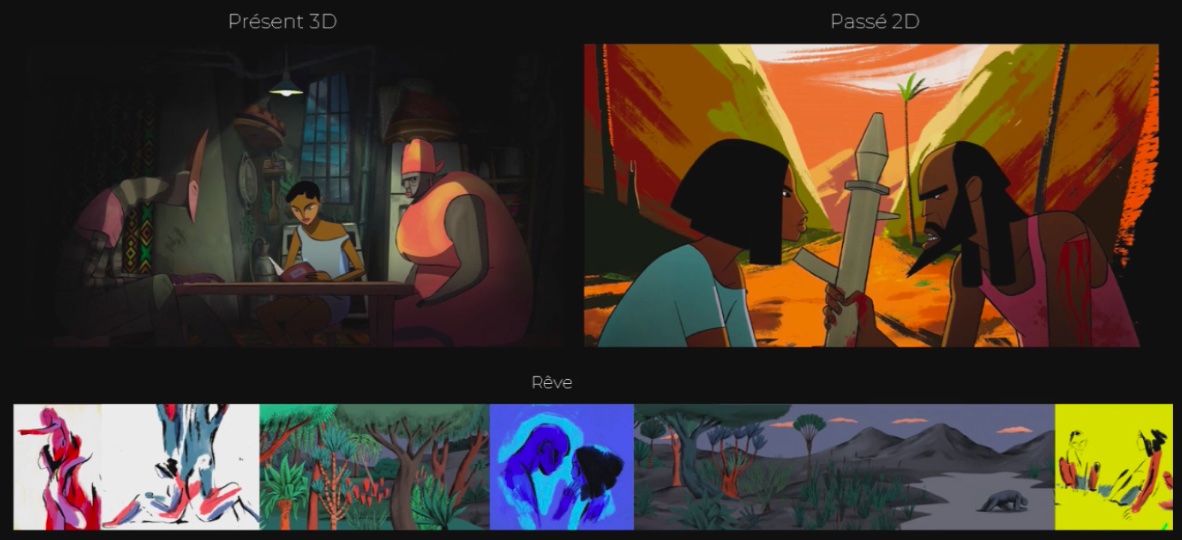

First Look: Three Generations Of Women Grapple With Angola’s War In ‘Nayola’
Eras interweave and reality shades into dream in Nayola, a drama that traces the legacy of the decades-long civil war in Angola. Based on the play Black Box by Jose Eduardo Agualusa and Mia Couto, two prominent writers from Portuguese-speaking Africa, the film follows the fortunes of three generations of women from a single family, including the title character.
Nayola, which was presented as a work in progress at Annecy last month, is the feature directorial debut of José Miguel Ribeiro, whose acclaimed shorts include the Cartoon d’Or winner A Suspeita. Ribeiro, who is Portuguese, strove to make the film true to the experiences of Angolans by visiting the country multiple times. After speaking to locals on his second visit, he reworked the animatic to incorporate their contributions.

Kimbundu, one of Angola’s official languages, is spoken in the film. The voice cast features non-professional actors, including a rapper and a spoken-word artist. Ribeiro talked movingly about working with one of the actors who is blind. He said a version of the film adapted for the visually impaired will be released in Portugal.
The multiple timelines prompted the filmmakers to experiment with their visual approach. The past, which shows a teenage Nayola searching for her missing husband, is being produced in 2d. The present — in which Nayola’s daughter Yara, a socially engaged rapper, is threatened by the police and a strange figure in a jackal’s mask — will be in cgi. There will also be dreamlike sequences which, if the concept artwork we saw is anything to go by, will veer toward a freeform, even abstract design.

The narrative’s complex structure is reflected in the production’s unconventional set-up. Four studios in as many countries are working on the film, through a “horizontal” pipeline: rather than divide the workload by stage of production, each studio is handling more or less the whole creation, from pre- to post-production, of one segment of the film.
Animated features about war and its psychological effects are common, verging on clichéd, in Europe. But Nayola issues from the minds of sensitive artists, starting with Ribeiro himself. Outside the lusophone world the conflict in Angola is little discussed, which makes this film all the more welcome. If the team can pull off their ambitious story, this could be special.
Producers: Praça Filmes (Portugal), S.O.I.L (Belgium), JPL Films (France), Il Luster Films (Netherlands), Jean-François Bigot

.png)

